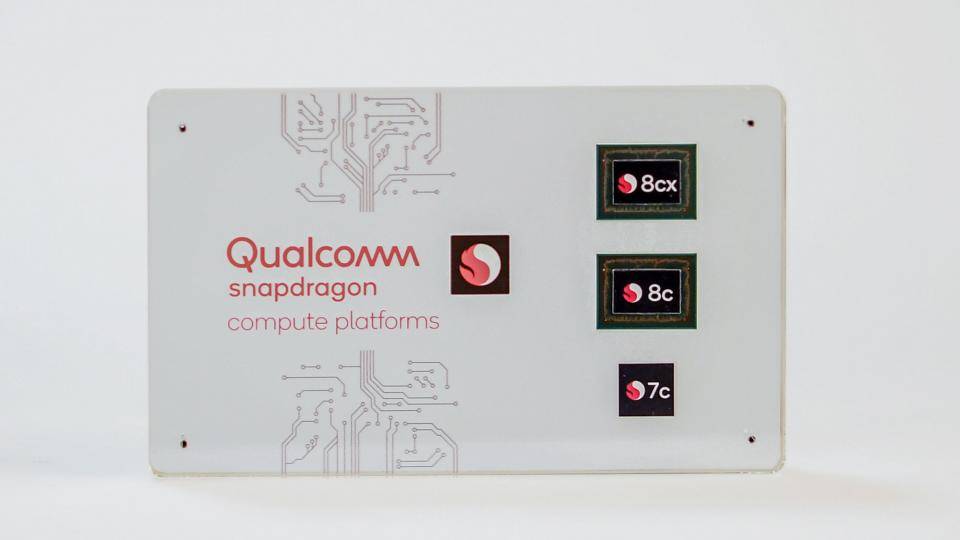
It’s been nearly two years since Qualcomm first introduced its mobile-processor-based laptops but, despite early promise, the hardware was sorely limited and very expensive. Things slightly changed for the better with the release of new Snapdragon 8cx-based laptops earlier this year, but Qualcomm’s efforts still failed to compete against traditional laptop architectures.
However, Qualcomm has announced a new range of laptop processors at its annual Tech Summit in Hawaii, and is instead moving its efforts away from the high-end. Unveiled alongside a handful of other announcements – including new smartphone processors and virtual reality platforms – the Snapdragon 8c and 7c will power mainstream and entry-level devices in 2020.
READ NEXT: The best laptops
The Snapdragon 8c is a slightly less powerful version of the flagship 8cx chipset. The 8c is a 7nm processor and is built using a combination of two Cortex A76 cores with clock speeds of 2.45GHz, which work alongside a further four Cortex A55 cores. Qualcomm says that the Snapdragon 8c is cable of delivering performance gains of up to 30% over its first-generation laptop chipset, the Snapdragon 850.
The Snapdragon 7c sits towards the cheaper end of the spectrum. Powering entry-level devices, the Snapdragon 7c includes an octa-core Kryo 468 CPU which, according to Qualcomm, delivers a 25% boost in system performance compared to “competing platforms” and provides twice the battery life. The embedded Adreno 618 GPU also allows for smartphone-like gaming performance.
Like last year, there weren’t any commercial designs unveiled at the launch. However, I’d expect the first announcements to begin trickling in from various manufacturers at CES next year. Because they won’t be as powerful as 8cx-based devices, Snapdragon 7c and 8c laptops will cost significantly less than we’re currently used to.
Qualcomm’s future in laptops is still clouded in doubt, but with a promise of extended battery life, paired with performance gains in the lower-end, the announcements today offer a very enticing proposition for ARM-based machines coming in 2020.
